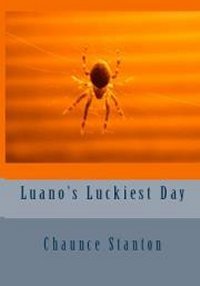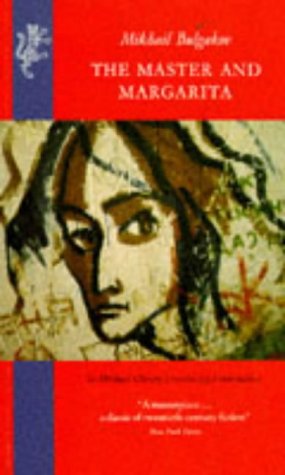Raised by a half-mad mother who dabbled in magic, Morwenna Phelps found refuge in two worlds. As a child growing up in Wales, she played among the spirits who made their homes in industrial ruins. But her mind found freedom and promise in the science fiction novels that were her closest companions. Then her mother tried to bend the spirits to dark ends, and Mori was forced to confront her in a magical battle that left her crippled--and her twin sister dead.
Fleeing to her father whom she barely knew, Mori was sent to boarding school in England–a place all but devoid of true magic. There, outcast and alone, she tempted fate by doing magic herself, in an attempt to find a circle of like-minded friends. But her magic also drew the attention of her mother, bringing about a reckoning that could no longer be put off…
From Goodreads description
This book won the Hugo Award for Best Novel (2012) and the Nebula Award for Best Novel (2011) and was shortlisted for several more. It isn't exactly surprising that the book was so popular with the speculative fiction fans, as it is in many ways a homage to science fiction and fantasy writing. The central character is a 15-year old girl with a precocious appetite for books in the genre.
The story is told through entries in her journal, which together with recording incidents in her life also records her thoughts on books. To Mori books are more important than people: I care more about the people in books than the people I see every day. As a result Among Others does not have the strong plot line that you might expect from a fantasy novel. The description above is in many ways misleading. Much of the "action" in the novel is about life in a second-tier boarding school, Mori's interest in a young man at the library Sci-Fi book club, and Mori's relations with her extended family.
Jo Walton does an excellent job of showing both Mori's intelligence and her inexperience. Mori is at times confident, especially when pronouncing on books, and at others insecure. This is a girl who bases a lot of her interactions with others on what she has read: there's no sex, hardly any love stuff at all, in Middle Earth, which always made me think, yes, the world would be better off without it.
The story is told through entries in her journal, which together with recording incidents in her life also records her thoughts on books. To Mori books are more important than people: I care more about the people in books than the people I see every day. As a result Among Others does not have the strong plot line that you might expect from a fantasy novel. The description above is in many ways misleading. Much of the "action" in the novel is about life in a second-tier boarding school, Mori's interest in a young man at the library Sci-Fi book club, and Mori's relations with her extended family.
Jo Walton does an excellent job of showing both Mori's intelligence and her inexperience. Mori is at times confident, especially when pronouncing on books, and at others insecure. This is a girl who bases a lot of her interactions with others on what she has read: there's no sex, hardly any love stuff at all, in Middle Earth, which always made me think, yes, the world would be better off without it.
Without the fairies this would be a realist book. And maybe even with fairies it's realist. We are seeing the story through Mori's eyes and words. How reliable a narrator is she? Is there really magic? She says: You can almost always find chains of coincidence to disprove magic. And she goes on to say of magic: That's because it doesn't happen the way it does in books. It makes those chains of coincidence. That's what it is. Rather than dismiss the magic, she dismisses the alternative answer. So when people are friendly towards her, she worries that that is because in her loneliness she asked the magic to find her like-minded people.
The fairies that Mori sees are not like the ones of most stories - true, some are beautiful Tolkien elf-like creatures, but others are more organic, woven from trees and roots. They talk to Mori, but their talk needs Mori to interpret, which of course she does in faux Tolkien elvish. Their answers are usually cryptic and also require interpretation. They are creatures of wasteland, lost remnants of the ancient fae surviving (sometimes literally) between the cracks in pavements.
Mori reveals very little of the "battle" with her mother that saw her twin killed and herself crippled. She regards her mother as a mad witch, who aspires to be the witch queen. But from what we see in Mori's journal (with the exception of the final section) her mother could just be mad. And is Mori mad also, a disturbed highly intelligent girl?
In the end I came to the conclusion that Mori was not mad and the magic was real. In the last section of the book the world definitely tilts towards the magical. Mori takes another character to meet the fairies and he appears to do so. This is quickly followed by a confrontation between Mori and her mother. This section was closer to what one would expect from a fantasy novel. It is interesting to note that although Mori reads science fiction she experiences fantasy.
I found the ending somewhat disappointing, but that is a relatively minor issue. This is a book about a girl with whom I could identify and many of you will too - the book-reading teenager who slowly finds her karass (a Vonnegut word meaning "a group of people linked in a cosmically significant manner, even when superficial links are not evident"). Superficially there are parallels with Harry Potter - she claims to have saved the world from her mother. But the ambiguity in the portrayal of magic and the predominantly realistic content make it more than that. Is it magic realism rather than fantasy? That depends on your definition.




